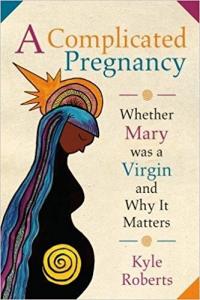Today (December 8), Catholics worldwide celebrate the Feast of the Immaculate Conception.
You might not know that the Immaculate Conception isn’t about Jesus’ conception, but of Mary’s.
![Francisco Rizi [Public domain], via Wikimedia Commons](https://wp-media.patheos.com/blogs/sites/503/2017/12/Rizi-inmaculada-e1512751690986.jpg)
No, Mary wasn’t conceived of a virgin. Rather, the “immaculate conception” refers to the Holy Spirit removing all sin from Mary’s soul when she was conceived in her mother’s womb. This miracle—a retroactive application of Christ’s saving work—made her a pure, untarnished vessel; she was born without original sin and guilt, and that made her worthy, some years later, to bear in her body the divine Son of God.
Even though the Bible’s virgin birth story (told in Matthew and Luke) says nothing explicitly along these lines, early Christian theology began to think of the virgin birth as the great solution to the problem of original sin.
God interrupts the cycle of the transmission of sin through sexual procreation. Remove the male father (Joseph), replace him with the Spirit, and you’re almost there. But theologians wrestled with the problem that the human mother was still a sinner—herself a product of sexual intercourse. Eventually, the church solved that problem too: God intervened to protect Mary from sin and sex so she could be worthy to house God incarnate.
The doctrine of the Immaculate Conception was inscribed in Catholic doctrine in 1854, though the logic of the doctrine was worked out many centuries prior, in the late Middle Ages. It was a consequence of the theology of Augustine (and of Ambrose, his pastor); a logical implication of his theology of original sin.
All this presumes 1) that sin and sex are inherently intertwined and that sin is passed along somehow through procreation; and 2) that Jesus Christ, as God incarnate, had to be shielded from human sexual intercourse and from the “sinful” elements of human biology.
But as I see it, these developments diminished both Mary and Jesus.
They objectified Mary’s sexuality by focusing on her “purity” as the reason for her worthiness in God’s work of salvation, and they separated her from the rest of humanity by introducing the notion of an immaculate conception.
For a more human picture of Mary—consider the Magnificat (Luke 1:46-55). This is Mary’s song of wonder and thanks that God has chosen her to participate in a very tangible transformation of society. God blessed a poor, peasant Jewish girl with the gift of participating in the redemption of her people. For Mary, God’s blessing had nothing to do with her sexuality—or lack of it.
The same can be said of Jesus: in the attempt to protect Jesus from the scourge of sin and sex, the  Christian tradition sacralized the virgin birth.
Christian tradition sacralized the virgin birth.
But the incarnation means that God enters fully into our condition. The Son of God really becomes one of us. As I argue more fully in my recent book, A Complicated Pregnancy: Whether Mary Was a Virgin and Why It Matters (Fortress Press, 2017), if God really becomes one of us, why wouldn’t he become one of us in the same way that we become one of us? Procreation through human intercourse.
The mechanism whereby God enters the world matters less than the fact that God enters the world. We don’t need all the conceptual gymnastics, such as the immaculate conception of Mary, to affirm that Emmanuel, God is with us, in Jesus. Indeed, we may be better off without them.











